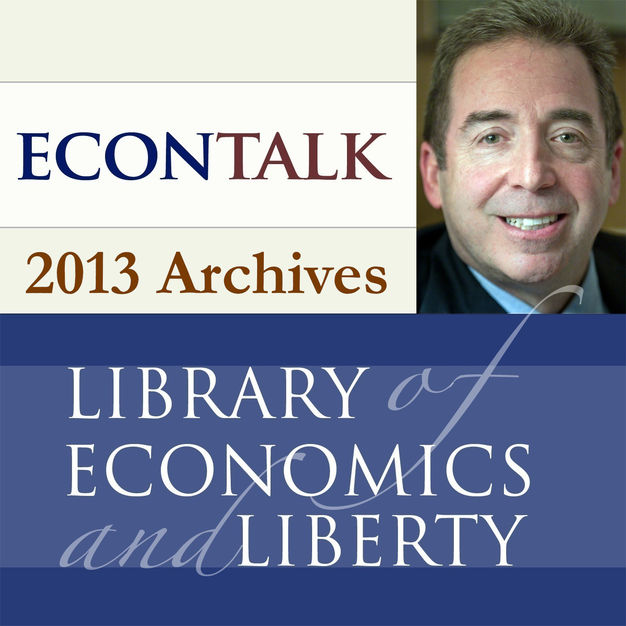
EconTalk Archives, 2013
EconTalk: Russ Roberts, Library of Economics and Liberty
EconTalk is an award-winning weekly talk show about economics in daily life. Featured guests include renowned economics professors, Nobel Prize winners, and exciting speakers on all kinds of topical matters related to economic thought. Topics include health care, business cycles, economic growth, free trade, education, finance, politics, sports, book reviews, parenting, and the curiosities of everyday decision-making. Russ Roberts, of the Library of Economics and Liberty (econlib.org) and George Mason U., draws you in with lively guests and creative repartee. Look for related readings and the complete archive of previous shows at EconTalk.org, where you can also comment on the podcasts and ask questions.
- 30 December 2013, 11:30 amRichard Fisher on Too Big to Fail and the FedRichard Fisher, President of the Federal Reserve Bank of Dallas, talks with EconTalk host Russ Roberts about the problems with "too big to fail"--the policy idea that certain financial institutions are too large to face the bankruptcy or failure and need to be rescued or bailed-out. Fisher argues that "too big to fail" remains a serious problem despite claims that recent financial regulation has eliminated it. Fisher discusses various ways to deal with too-big-to-fail, including his own preferred policy. The last part of the conversation deals with quantitative easing and monetary policy during the crisis.1 hour 16 seconds
- 23 December 2013, 11:30 amJudith Curry on Climate ChangeJudith Curry of the Georgia Institute of Technology and blogger at Climate Etc. talks with EconTalk host Russ Roberts about climate change. Curry argues that climate change is a "wicked problem" with a great deal of uncertainty surrounding the expected damage as well as the political and technical challenges of dealing with the phenomenon. She emphasizes the complexity of the climate and how much of the basic science remains incomplete. The conversation closes with a discussion of how concerned citizens can improve their understanding of climate change and climate change policy.1 hour 6 minutes
- 16 December 2013, 11:30 amWally Thurman on Bees, Beekeeping, and CoaseWally Thurman of North Carolina State University and PERC talks with EconTalk host Russ Roberts about the world of bees, beekeepers, and the market for pollination. Thurman describes how farmers hire beekeepers to pollinate their crops and how that market keeps improving crop yields and producing honey. Thurman then discusses how beekeepers have responded to Colony Collapse Disorder--a not fully understood phenomenon where colonies disband, dramatically reducing the number of bees. The discussion closes with the history of bee pollination as an example of a reciprocal externality and how Coase's insight helps understand how the pollination market works.1 hour 3 minutes
- 9 December 2013, 11:30 amDoug Lemov on TeachingDoug Lemov of Uncommon Schools and author of Teach Like a Champion talks with EconTalk host Russ Roberts about teaching and education. Drawing on his experience working in charter schools with children in poverty, Lemov discusses what makes a great teacher and a great school. Lemov argues that practice and technique can transform teaching and education. The conversation concludes with a discussion of how EconTalk might be made more valuable to its listeners.1 hour 6 minutes
- 2 December 2013, 11:30 amLant Pritchett on Education in Poor CountriesLant Pritchett of Harvard University and author of The Rebirth of Education talks with EconTalk host Russ Roberts about the ideas in the book. Pritchett argues that increases in years of schooling for students in poor countries do not translate into gains in education, learning, or achievement. This tragic situation is due to corruption and poor incentives in the top-down educational systems around the world. School reforms that imitate successful systems fail to take into account the organic nature of successful school systems that cause various external attributes to be effective. The conversation concludes with a discussion of school systems in rich countries and possible lessons for reform that might apply there.1 hour 4 minutes
- 25 November 2013, 11:30 amJoel Mokyr on Growth, Innovation, and StagnationJoel Mokyr of Northwestern University talks with EconTalk host Russ Roberts about the future of the American economy. Mokyr rejects the claims that the we are entering an area of stagnation or permanently lower economic growth. He argues that measured growth understates the impact on human welfare. Many of the most important discoveries are new products that are often poorly measured and not reflected in measures such as gross domestic product or income. The conversation closes with a discussion of the downsides of technology and why Mokyr remains optimistic about the future.1 hour 5 minutes
- 18 November 2013, 11:30 amDeaton on Health, Wealth, and PovertyAngus Deaton of Princeton University and author of the Great Escape talks with EconTalk host Russ Roberts about the book--the vast improvements in health and standard of living in recent times. Deaton surveys the improvements in life expectancy and income both in the developed and undeveloped world. Inequality of both health and wealth are discussed as well. The conversation closes with a discussion of foreign aid and what rich nations can do for the poor.1 hour 23 seconds
- 11 November 2013, 11:30 amEdmund Phelps on Mass FlourishingEdmund Phelps of Columbia University, Nobel Laureate in economics, and author of Mass Flourishing talks with EconTalk host Russ Roberts about the ideas in the book. Phelps argues that human flourishing requires challenges, struggles, and success and goes beyond material prosperity. He argues that in recent decades, policy has discouraged innovation and mass flourishing resulting in a slow-down in growth rates. Phelps emphasizes the non-material benefits of economic growth and the importance of small innovations over big inventions as key to that growth.1 hour 6 minutes
- 4 November 2013, 11:30 amJohn Ralston Saul on Reason, Elites, and Voltaire's BastardsJohn Ralston Saul, author and head of PEN International, speaks with EconTalk host Russ Roberts about his book, Voltaire's Bastards, and the role of reason in the modern world. Saul argues that the illegitimate offspring of the champions of reason have led to serious problems in the modern world. Reason, while powerful and useful, says Saul, should not be put on a pedestal above other values including morality and common-sense. Saul argues that the worship of reason has corrupted public policy and education while empowering technocrats and the elites in dangerous and unhealthy ways.1 hour 12 minutes
- 28 October 2013, 11:30 amBoudreaux on CoaseDon Boudreaux of George Mason University and Cafe Hayek talks with EconTalk host Russ Roberts about the intellectual legacy of Ronald Coase. The conversation centers on Coase's four most important academic articles. Most of the discussion is on two of those articles, "The Nature of the Firm," which continues to influence how economists think of firms and transaction costs, and "The Problem of Social Cost," Coase's pathbreaking work on externalities.1 hour 13 minutes
- 21 October 2013, 11:30 amCalvo on the Crisis, Money, and MacroGuillermo Calvo of Columbia University and the National Bureau of Economic Research talks with EconTalk host Russ Roberts about the nature of macroeconomic crises and what we have learned or should have learned in the aftermath of the most recent one. Based loosely on his recent paper, "Puzzling Over the Anatomy of Crises," Calvo discusses a wide array of issues related to macroeconomics and the role of financial instability in economy-wide crises. Topics include the role of money, the problem of short-term lending in the financial sector, the black-box approach of modern macroeconomic theory and the forgotten economists we might want to reconsider.1 hour 9 minutes
- More Episodes? Get the App
- http://www.EconTalk.org
- en-us
Your feedback is valuable to us. Should you encounter any bugs, glitches, lack of functionality or other problems, please email us on [email protected] or join Moon.FM Telegram Group where you can talk directly to the dev team who are happy to answer any queries.
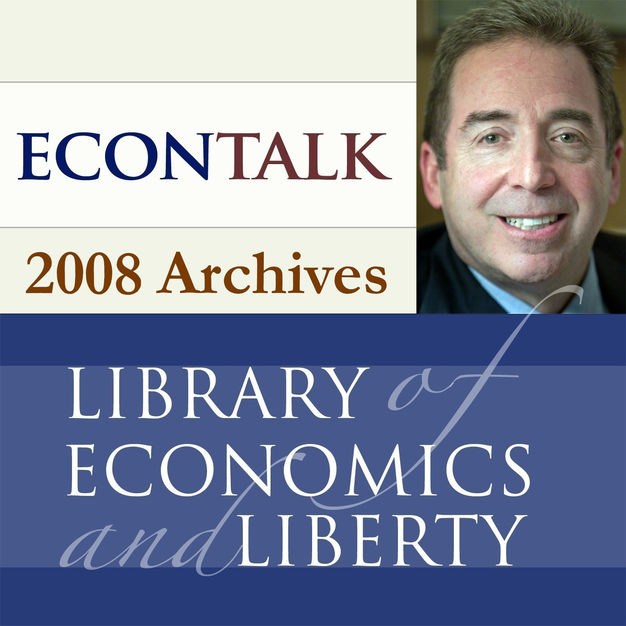 EconTalk Archives, 2008
EconTalk Archives, 2008
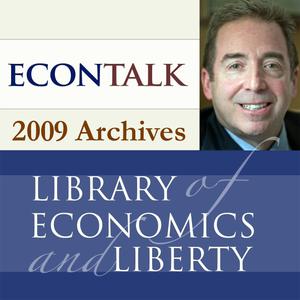 EconTalk Archives, 2009
EconTalk Archives, 2009
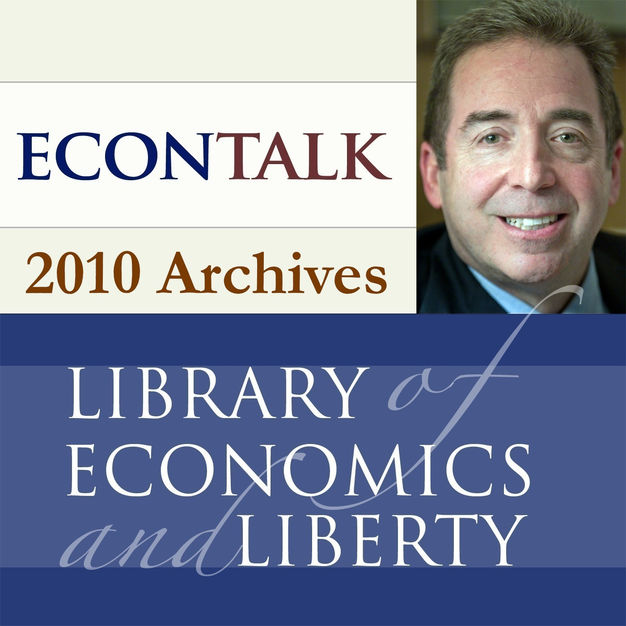 EconTalk Archives, 2010
EconTalk Archives, 2010
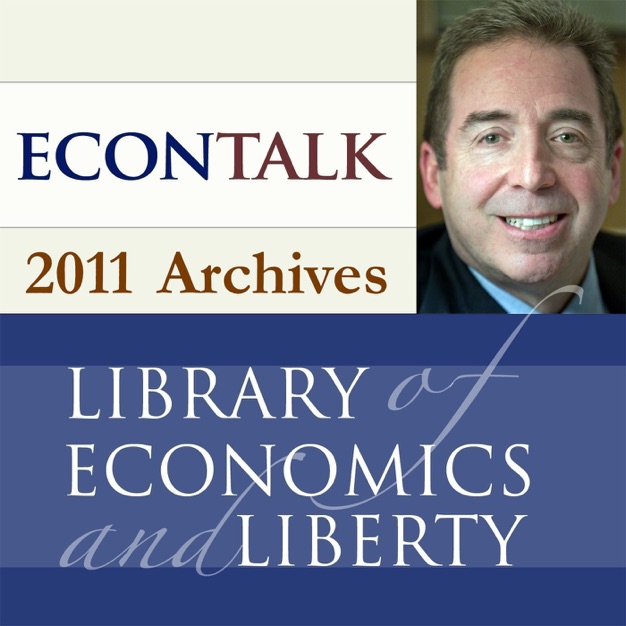 EconTalk Archives, 2011
EconTalk Archives, 2011
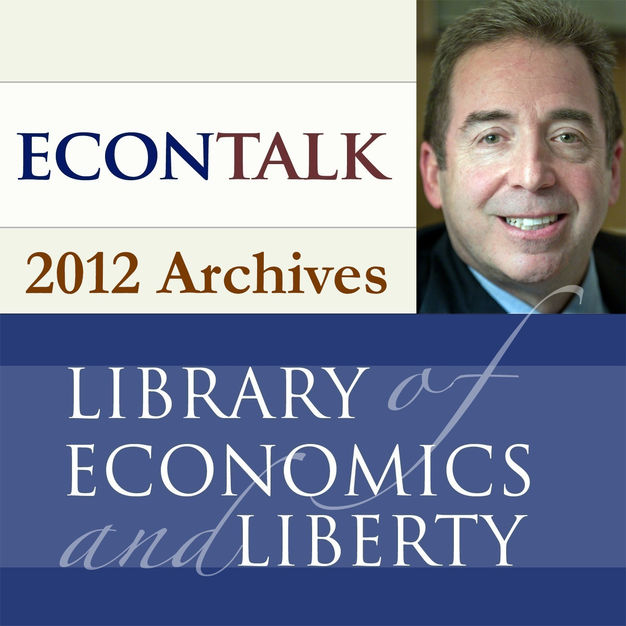 EconTalk Archives, 2012
EconTalk Archives, 2012
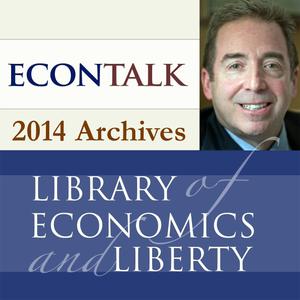 EconTalk Archives, 2014
EconTalk Archives, 2014